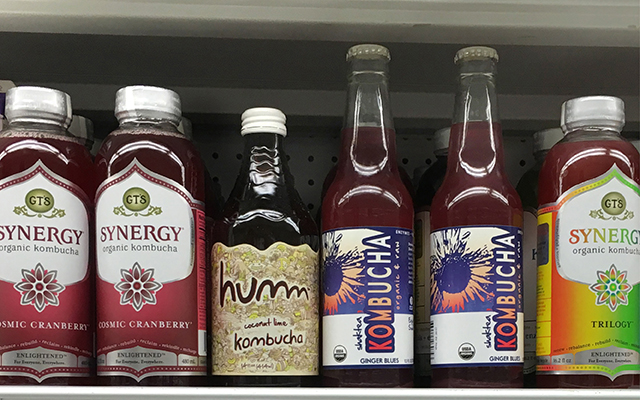We can take steps to protect and revitalize our microbial communities, beginning with shifting how we describe ourselves. We are actually what scientists call a superorganism, meaning a creature comprising many organisms, so it’s helpful to think of our body as a team.
“I tell my children that it’s kind of like being a superhero,” says Athena Aktipis, PhD, an evolutionary biologist at Arizona State University. “We have this diverse microbiota that allows us to do things we otherwise could not. It’s kind of like having superpowers.”
The following tips can help you protect your microbial superpowers.
1. Be Conservative About Antibiotic Use
While antibiotics are invaluable for treating life-threatening infections, using them for routine problems can deplete the microbiota in ways that allow bad players to take over.
“Considering what we now know about the role of gut bacteria in keeping us healthy, it should be considered malpractice for dermatologists to prescribe oral antibiotics for acne,” says Robynne Chutkan, MD, author of The Microbiome Solution, who attributes her struggles with rosacea to antibiotics she was prescribed as a teenager. “Even if they work, they can create other diseases that are arguably worse.” Antibiotic resistance, for example, is an extremely serious consequence of overprescribing antibiotics for non-life-threatening conditions.
Many experts recommend avoiding antibiotics except in cases of serious infection. When they’re necessary, protect your microbiota by taking -probiotics or a form of yeast called Saccharomyces boulardii (available in capsules).
Another source of unnecessary antibiotics is feedlot meat. Livestock raised in feedlots are fed antibiotics, including those designed for human use, both to prevent the spread of disease in their crowded conditions and to help them put on weight. When we eat these animals, we’re eating antibiotic residue, as well as possibly dangerous microorganisms that evolved resistance to the antibiotics. You can avoid this problem — and support farmers who use more humane methods — by choosing meat from animals raised on pasture. (For more on this, see “The Conscientious Carnivore“.)
2. Consume Prebiotics
Research has shown that the molecular structure of some plant fibers makes them superfoods for microbes; these are sometimes called prebiotics. Among these are Jerusalem artichokes, asparagus, under-ripe bananas, Brussels sprouts, chicory root, dandelion greens, raw garlic, jicama, leeks, legumes, onions, and peas. Try to consume a few of these whole foods each day.
3. Steer Clear of Sugar
Eating a lot of sugar — especially in the absence of fiber — strengthens E. coli and other pathogens that feed on it. It also triggers a battle between bad microbes and our own cells, which fight for this quick source of energy.
“These harmful microbes proliferate, then your immune system is activated to fight them, and you get a lot of inflammation,” explains Aktipis, who researched this process for a study published in the Annals of the New York Academy of Sciences. “The microbes can actually increase their virulence and try even harder to monopolize the resources.”
When we fill up on prebiotic fiber to feed our good bacteria and avoid sugar, we effectively starve harmful microbes and win the battle against their influence.
4. Eat “Cooperative” Food
Simple sugars cause conflict between our microbes and our cells, but eating a wide variety of vegetables, legumes, grains, and fruits encourages cooperation between them. These foods contain complex molecular structures that require many steps to break down, thus recruiting more kinds of microbes.
Different microbes preferentially consume different complex carbo-hydrates and fibers, strengthening the community of the gut microbiota by prompting a range of services from them. As they busily meta-bolize various foods, they release a range of short-chain fatty acids and chem-icals. Some support our health directly, while others build up their fellow microbes in the gut community.
Plotnikoff suggests adhering to the old Japanese admonition to eat at least 30 different whole-food ingredients every day.
5. Eat the Rainbow
We are drawn to bright-red tomatoes, deep-green spinach, and the bluest blueberries for a reason. Just as plant fibers help the microbiota thrive, so do the flavonoids and other phytonutrients found in brightly colored vegetables, fruits, herbs, and spices. These seem to encourage diversity in the gut microbiota that helps control inflammation, says Leo Galland, MD, author of The Allergy Solution.
6. Feast on Fermented Foods
Kefir, yogurt, kimchi, sauerkraut, and other cultured foods are loaded with living microorganisms, and though researchers no longer expect them to simply repopulate our guts, they do support gut function in other ways.
“Probiotics are beneficial, but not in the ways we thought,” says Robert Rountree, MD, a Boulder, Colo.–based functional-medicine physician, who sometimes prescribes high-dose probiotic capsules to patients and checks their fecal bacteria to see how it’s changed.
“You don’t necessarily find the kinds of bacteria that were in the dose, but you see improvement in overall diversity and growth in the numbers of bacteria that ferment carbohydrates to make short-chain fatty acids,” he explains. “It seems that the probiotic’s main effect is to help other bacteria. They come and help their friends.”
7. Get a Little Dirty
Babies put everything in their mouths — toes, toys, random objects in the backyard. This appears to be part of an evolutionary strategy to “feed data” to the immune system. Even as adults, our immune systems need ongoing challenges to stay in shape.
This is why antimicrobial products may make us more, not less, susceptible to disease-causing organisms, warns Ruebush: They kill off most of the bacteria on our hands and on surfaces but leave behind the more robust organisms, which can mutate and become superbugs. A common-sense approach to cleanliness is to rely on soap and water and avoid excessive use of antibacterial cleansers.
8. Take a Deep Breath of Fresh Air
We might be able to repopulate certain kinds of bacteria in our guts just by getting some fresh air. About a third of gut microbiota is made up of spore-forming bacteria that slough off and persist in the soil for hundreds of years. When we breathe and swallow air containing these ancient bacterial spores, they can repopulate our guts.
“If we go to places where humans have been, there will be spores of these gut microbes,” says Rook. “I’m sure I have organisms in my gut derived from Julius Caesar, because he would have passed through London, where I now live.”
Some beneficial microbes we encounter in nature aren’t derived from human microbiota, but they still affect it. One experiment found that immunizing mice with an inert bacterium called Mycobacterium vaccae, which is typically found in soil where cattle have grazed, prevented stress-induced colitis despite microbiota changes characteristic of the inflammatory bowel disease. It also seems to protect against anxiety and depressive behaviors.
9. Be Affectionate
Back in the days when microbes were universally shunned, scientists couldn’t understand why hugging, kissing, hand-holding, and other physical intimacies persisted in so many cultures. Didn’t these behaviors spread germs and make people sick?
“Now that we know that most microorganisms are commensal or even beneficial, it seems reasonable to think that this transfer of microbes is in many cases beneficial,” says evolutionary biologist Andrew Moeller, PhD, a Miller Research Fellow at the University of California, Berkeley. In 2016 he published a paper in Science Advances showing that chimpanzees who engaged in lots of these intimate social behaviors had a more diverse microbiota.
So go ahead, shake some hands. Pat a few friends on the back. Embrace the vast microbial life that’s in us and wafts around us like a cloud, and know that you are never alone.
This originally appeared as “Rejuvenate the Microbiome” in “Build Your Microbiome” in the July/August 2017 issue of Experience Life.




This Post Has 0 Comments